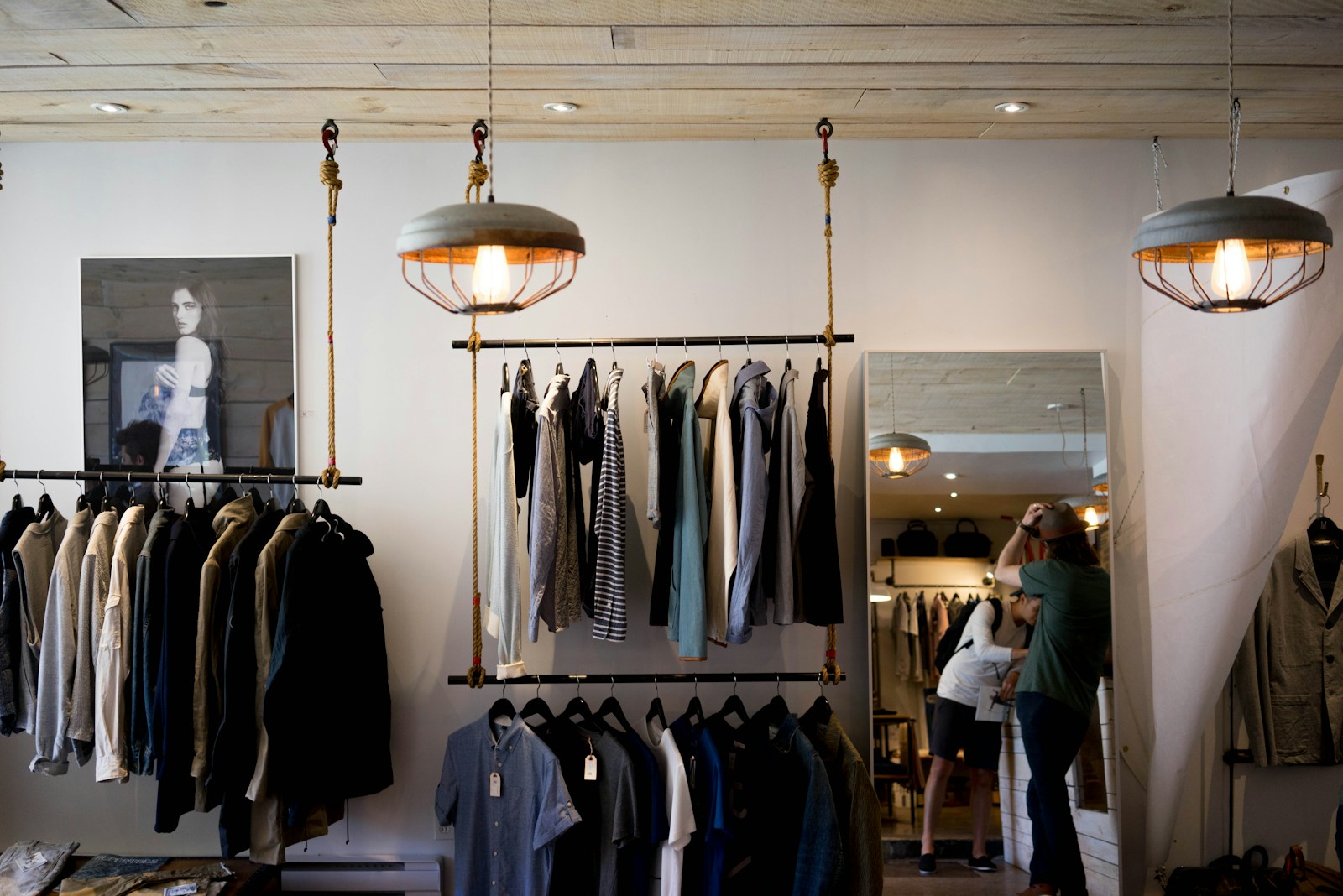
In the ever-evolving landscape of consumer retail, staying abreast of emerging trends is crucial for businesses aiming to thrive. This section delves into the key trends shaping the consumer retail sector today.
Emerging Trends in Consumer Retail
Growth of E-commerce
The consumer retail sector has seen a significant shift towards e-commerce. Online shopping platforms have become a staple for consumers, offering convenience and a wider range of products. This trend is expected to continue, with more retailers investing in robust online infrastructures.
Sustainability in Retail
Sustainability is no longer a niche concern but a mainstream demand. Consumers are increasingly prioritizing eco-friendly products and practices. Retailers are responding by adopting sustainable sourcing, reducing waste, and promoting ethical manufacturing processes.
Personalized Shopping Experiences
Personalization is transforming the consumer retail experience. Advanced data analytics enable retailers to offer tailored recommendations and promotions. This trend enhances customer satisfaction and loyalty by making shopping experiences more relevant and engaging.
Top Brands Leading the Market
The consumer retail sector is dominated by several major players who consistently set industry standards. Companies like Amazon, Walmart, and Target have established themselves as leaders through their expansive product ranges and innovative approaches to retail.
Innovative Strategies by Leading Brands include leveraging technology to enhance customer experiences. For instance, Amazon’s use of AI for personalized recommendations and Walmart’s investment in seamless online-to-offline shopping experiences highlight their forward-thinking strategies.
Brand loyalty and consumer trust are crucial in the consumer products and retail industry. Brands that prioritize transparency, quality, and customer service tend to foster stronger connections with their customers, ensuring long-term success in the competitive consumer retail market.
Consumer Preferences in Retail
The shift towards online shopping has become a dominant trend in the consumer retail sector. Consumers increasingly prefer the convenience and variety offered by e-commerce platforms, leading to a significant rise in online retail sales.
Another key trend is the growing demand for ethical products. Shoppers are more conscious of the environmental and social impact of their purchases, driving the popularity of sustainable and ethically produced goods.
Lastly, the importance of convenience cannot be overstated. Consumers value quick and easy shopping experiences, whether through streamlined online interfaces or efficient in-store services. This preference is shaping the strategies of many retail consumer goods companies.
Impact of Technology on Consumer Retail
The Role of Artificial Intelligence in consumer retail is transformative. AI enhances customer experiences through personalized recommendations and efficient inventory management. Retailers use AI to analyze consumer behavior, predict trends, and optimize supply chains.
Mobile Shopping Trends are reshaping the consumer retail sector. With the rise of smartphones, consumers prefer shopping via mobile apps. This trend drives retailers to develop user-friendly mobile platforms, ensuring seamless shopping experiences.
Augmented Reality (AR) is revolutionizing the way consumers interact with retail products. AR allows customers to visualize products in real-world settings before purchasing. This technology boosts consumer confidence and reduces return rates.
- AI for personalized shopping
- Mobile apps for convenience
- AR for enhanced product visualization
Shifts in Consumer Behavior
Consumer behavior in the retail sector is undergoing significant changes. One notable shift is the increased focus on health and wellness. Consumers are now more inclined to purchase products that promote a healthy lifestyle, from organic foods to fitness equipment. This trend is driven by a growing awareness of the importance of physical and mental well-being.
Another key trend is the preference for local products. Shoppers are increasingly supporting local businesses and seeking out locally sourced goods. This shift is partly due to a desire to reduce environmental impact and support the local economy. As a result, retailers are stocking more local products to meet this demand.
Social media also plays a crucial role in shaping shopping habits. Platforms like Instagram and TikTok influence consumer decisions through trends and recommendations. “Social media has become a powerful tool for discovering new products and brands,” says industry expert Jane Doe. Retailers are leveraging these platforms to engage with consumers and drive sales.
Popular Retail Consumer Goods
The consumer retail sector is constantly evolving, with certain categories of retail consumer goods consistently capturing consumer interest. Trending fashion items, in-demand electronics, and popular home goods are among the top categories driving consumer purchases.
Trending Fashion Items
Fashion trends are ever-changing, but some items remain consistently popular:
- Streetwear: Brands like Supreme and Off-White continue to dominate.
- Eco-friendly Apparel: Sustainable fashion is gaining traction.
- Activewear: Athleisure remains a staple in many wardrobes.
In-demand Electronics
Electronics are a major driver in the consumer retail sector, with high demand for:
- Smartphones: New releases from Apple and Samsung are highly anticipated.
- Wearable Tech: Smartwatches and fitness trackers are popular.
- Home Entertainment: 4K TVs and gaming consoles are in demand.
Popular Home Goods
Home goods continue to see strong consumer interest, particularly in:
- Smart Home Devices: Products like smart speakers and thermostats.
- Eco-friendly Products: Sustainable home goods are increasingly sought after.
- Decor and Furniture: Stylish and functional pieces are trending.
Key Players in the Consumer Retail Sector
Leading Retail Chains
Leading retail chains dominate the consumer retail sector by offering a wide range of products and services. These chains include:
- Walmart: Known for its extensive product variety and competitive pricing.
- Costco: Offers bulk purchasing options and exclusive member benefits.
- Target: Combines affordability with a focus on style and quality.
These chains have established a strong presence through strategic store locations and robust supply chains.
Prominent Online Retailers
Online retailers have revolutionized the consumer retail sector by providing convenience and a vast selection of products. Key players include:
- Amazon: Offers an extensive range of consumer products and retail goods with fast delivery options.
- Alibaba: A major player in the global e-commerce market, known for its B2B and B2C platforms.
- eBay: Facilitates consumer-to-consumer and business-to-consumer sales.
These platforms leverage technology to enhance the shopping experience and meet consumer demands.
Influential Boutique Brands
Boutique brands play a significant role in the consumer retail sector by offering unique and specialized products. Notable brands include:
- Everlane: Focuses on ethical fashion and transparent pricing.
- Glossier: Known for its minimalist beauty products and strong social media presence.
- Warby Parker: Disrupts the eyewear market with stylish, affordable glasses and a direct-to-consumer model.
These brands attract niche markets and build loyal customer bases through innovation and quality.
Innovations in Retail Consumer Goods
Innovations in the consumer retail sector are transforming how we interact with products. Smart home devices are leading the charge, offering convenience and connectivity. These devices range from smart thermostats to voice-activated assistants, making everyday tasks easier.
Eco-friendly products are also gaining traction. Consumers are increasingly seeking sustainable options, driving brands to innovate. These products often feature recyclable materials and energy-efficient designs.
Customizable goods are another significant trend. Retailers now offer products tailored to individual preferences, from personalized clothing to bespoke electronics. This shift caters to the growing demand for unique and personalized shopping experiences.
- Smart Home Devices
- Eco-friendly Products
- Customizable Goods
Future of the Consumer Retail Industry
The consumer retail sector is poised for significant growth, driven by technological advancements and evolving consumer preferences. Predictions indicate a continued rise in e-commerce, with more consumers opting for online shopping due to convenience and variety.
However, the industry faces potential challenges such as supply chain disruptions and increasing competition. Retailers must adapt by investing in technology and enhancing customer experiences to stay competitive.
Opportunities for new entrants are abundant, particularly in niche markets and sustainable products. Emerging brands can capitalize on trends like eco-friendly goods and personalized shopping experiences to attract a loyal customer base.
FAQs: Consumer Retail Trends
What Are the Current Trends in Consumer Retail?
Current trends include the growth of e-commerce, sustainability, and personalized shopping experiences.
Which Brands Are Dominating the Consumer Retail Market?
Major players include Amazon, Walmart, and Target, known for their innovative strategies and consumer trust.
How Is Technology Influencing Consumer Retail?
Technology impacts retail through AI, mobile shopping, and augmented reality, enhancing the consumer experience.
What Are the Popular Consumer Goods in Retail?
Trending items include fashion, electronics, and home goods, reflecting current consumer preferences.
What Does the Future Hold for the Consumer Retail Industry?
The future promises growth, challenges, and opportunities for new entrants in the consumer retail sector.
Sources
- https://dor.wa.gov/taxes-rates/retail-sales-tax
- https://www.mass.gov/guides/a-massachusetts-consumer-guide-to-shopping-rights
- https://www.ers.usda.gov/publications/pub-details/?pubid=43836
- https://www.census.gov/retail/sales.html
- https://coag.gov/licensing/uniform-consumer-credit-code/
- https://www.usda.gov/foodwaste/faqs


